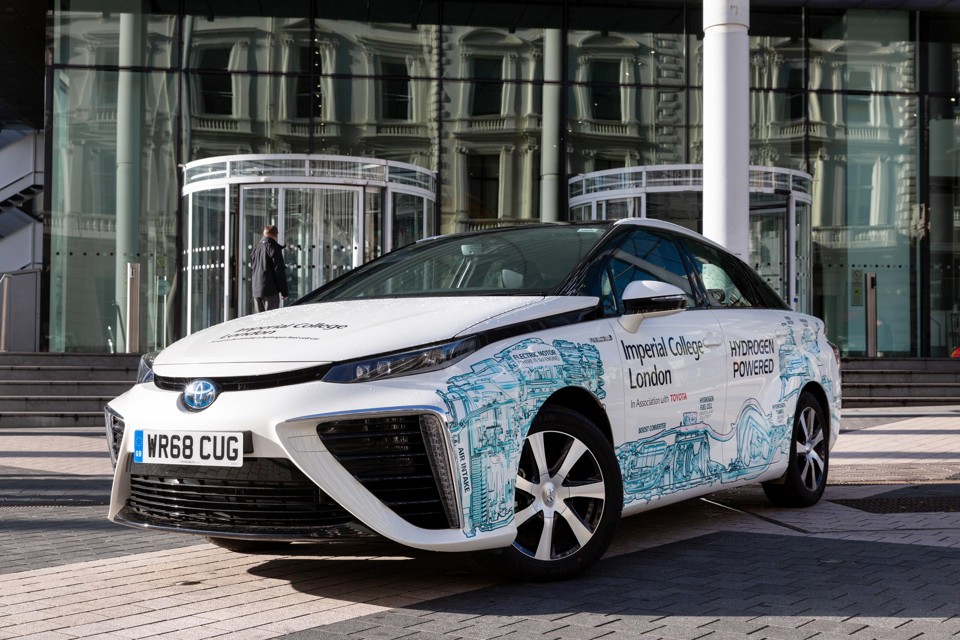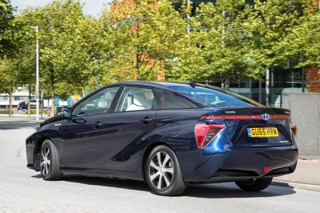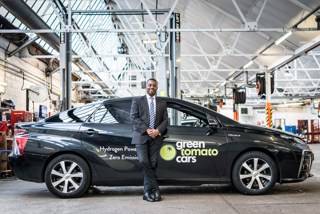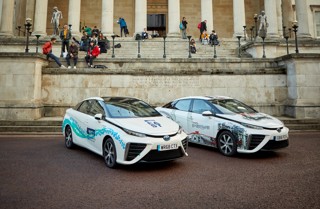Imperial College London has taken delivery of a new Toyota Mirai hydrogen fuel cell car to support its work looking into the potential of hydrogen as a future source of clean and sustainable energy.
The Mirai has been acquired with support from the Office for Low Emission Vehicles (OLEV), Hydrogen Mobility Europe (H2 ME) and the Fuel Cells and Hydrogen Joint Undertaking (FCHJU).
The university will use the Mirai both on the road, learning about its emissions-free performance on journeys between its London campuses, and as a research resource in its work with the UK Hydrogen and Fuel Cell Supergen Hub.
This multidisciplinary organisation brings together academics and industry experts to explore how hydrogen and fuel cells can overcome challenges to deliver cost-competitive, low-carbon technologies to help create a more secure UK energy landscape.
Professor Nigel Brandon, dean of Imperial College London’s faculty of engineering, said: “With our leading role in the UK Hydrogen and Fuel Cell Supergen Hub, we are excited to experience the Toyota Mirai hydrogen fuel cell car in real world driving conditions.
“We’re committed to advancing both sustainable road transport and hydrogen technologies and are delighted to host a car that helps mitigate climate change, improves local air quality and helps meet international energy and environmental policy goals.”
The Toyota Mirai is powered by electricity generated on-board by a fuel cell stack through the process of combining hydrogen with oxygen. On a full tank of fuel it can cover around 300 miles, producing no emissions other than water.























Login to comment
Comments
No comments have been made yet.